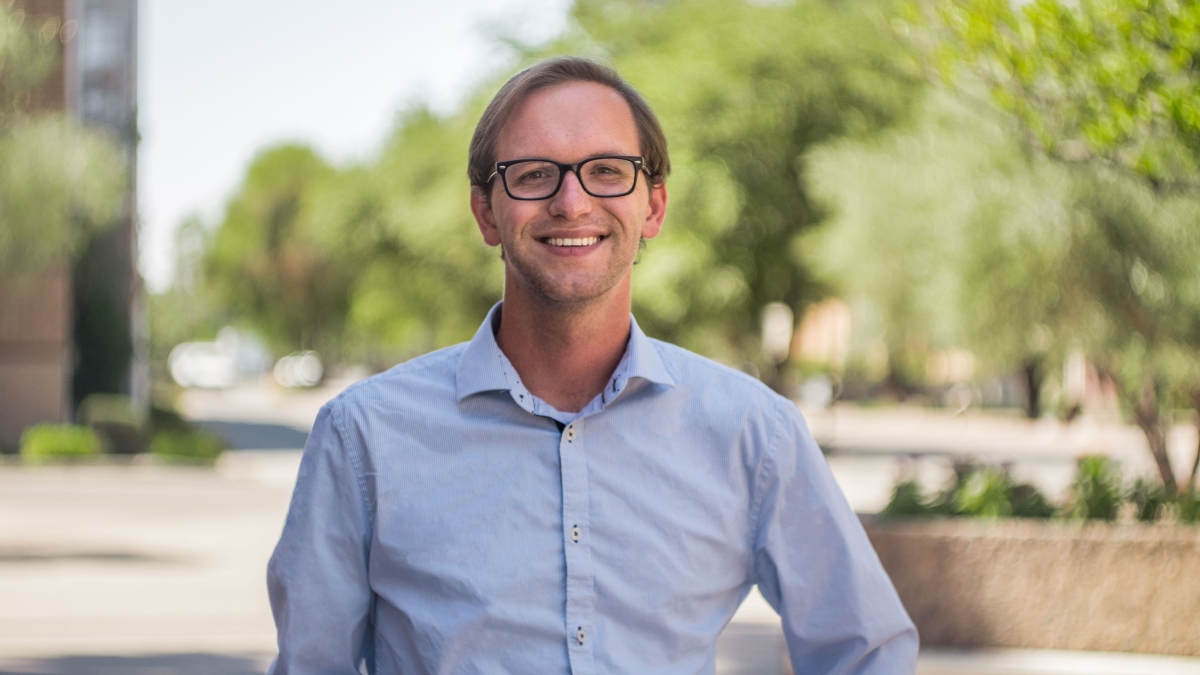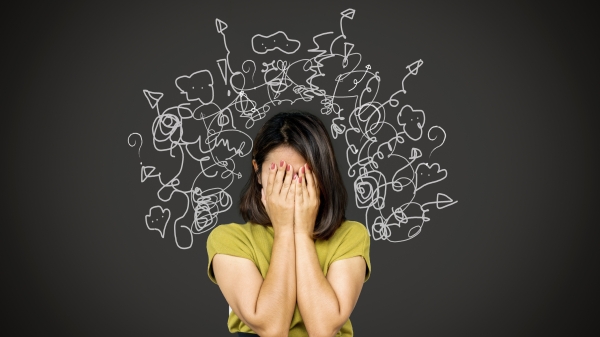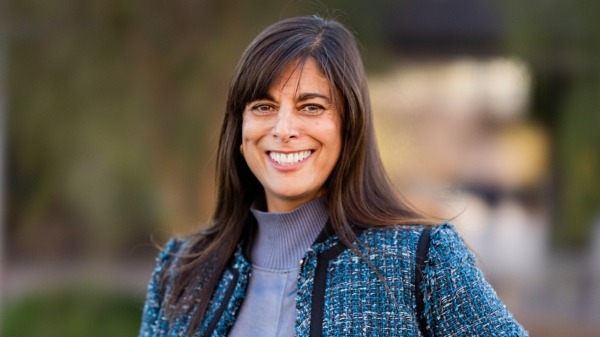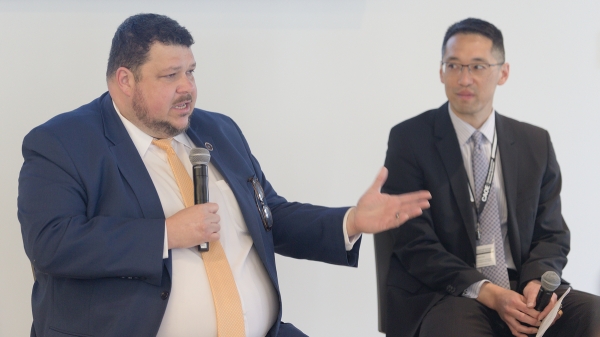It crawls and flies: ASU student wins award to study time perception
Carter Daniels earns American Psychological Association research award

Carter Daniels is a graduate student in the Department of Psychology at Arizona State University. Photo by Robert Ewing
Time seems to stand still during a cross-country flight, but then it flies while you're reading a good book. Carter Daniels, a graduate student in the Department of Psychology at Arizona State University, thinks a lot about this paradox.
Daniels won an American Psychological Association (APA) Dissertation Research Award, with high distinction, for his work on time perception. Daniels is working toward his doctorate with Federico Sanabria, associate professor of psychology.
To apply for the award, students had to write a proposal, and Laurie Chassin, Regents’ Professor of psychology and director of graduate studies, selected which applications to send to the APA. Daniels was one of about 40 graduate students across the country, along with fellow graduate student Michael Sladek, who won the award.
“The Department of Psychology was allowed to submit just two applications to the APA,” Chassin said. “And we received both!”
The award provides money for research costs, which will help Daniels complete experiments for his doctoral dissertation.
“My research shows that our perception of time is not as sensitive as scientists previously thought,” Daniels said. “I am bringing a new perspective to how we understand the passage of time.”
Theories that explain how we understand time assume that what motivates us is interconnected with our knowledge of time. After arriving at ASU, Daniels created mathematical models that contradicted this idea.
“I was finding the opposite with computational models,” Daniels said. “So we started thinking about how we could test this idea without a model.”
Sanabria and Daniels use mathematical models and carefully designed experiments to ask questions about how animals understand time. In the experiments, animals might have to press a lever for a food reward or they might have to listen for a sound before performing an action. Results from experiments like these can help scientists understand how humans think about time.
One of the experiments Daniels proposed for the award has the animals press a lever to receive a food reward, which arrives after a certain amount of time.
“The animals pause for about two-thirds of the waiting interval before pressing the lever for more food,” Daniels said. “How long they pause is an estimate of how close they think they are to receiving the food.”
Daniels and Sanabria thought up another simple way to test how animals understand time: they let the animals decide when to start the experiment. The researchers watch for the animal to perform a specific behavior at a certain time that lets the researchers know the animal is ready to begin. For example, the animal might poke his nose into a hole to indicate he is ready to start the experiment.
“We have asked animals to start engaging in a timing task whenever they want,” Sanabria said. “When we do this and change their motivational state, they still perform just as well.”
When the animals did not have control over when the experiment began, they did not track time as well. The animals’ ability to track time was also affected by their motivational state, or their mood. Daniels and Sanabria think this finding is likely true for humans too.
“Imagine a kid walks into class and the teacher gives a pop quiz. Their performance is based on their knowledge but also on the stress of the timing,” Daniels said. “Maybe if the kid were able to choose when to take the quiz, performance would improve.”
Daniels also suggested that his research might apply to how children with attention deficit hyperactivity disorder are accommodated.
“An answer might be to let them pace the world,” Daniels said. “Give them a little bit of control in situations like school.”
Daniels chose the ASU’s Department of Psychology for his doctorate because he wanted to work with Sanabria as a computational psychologist. He soon benefited from how the psychology department and university value collaboration and interdisciplinary research.
“Fed (Sanabria) facilitates my ideas,” Daniels said. “And I don’t know of many other places where I would have received both computational and experimental training.”
More Science and technology

The science behind chronic stress
Stress comes in many shapes and sizes. There’s the everyday stress of preparing for a final exam or being stuck in traffic. And…

ASU planetary scientist to be inducted into the National Academy of Sciences
The National Academy of Sciences is inducting School of Earth and Space Exploration Director Meenakshi Wadhwa into the 2023 class…

Unlocking the potential of AI for homeland security
“Can we do what we're doing now cheaper, more efficiently, more effectively?” Adam Cox, director in the Office of Strategy and…